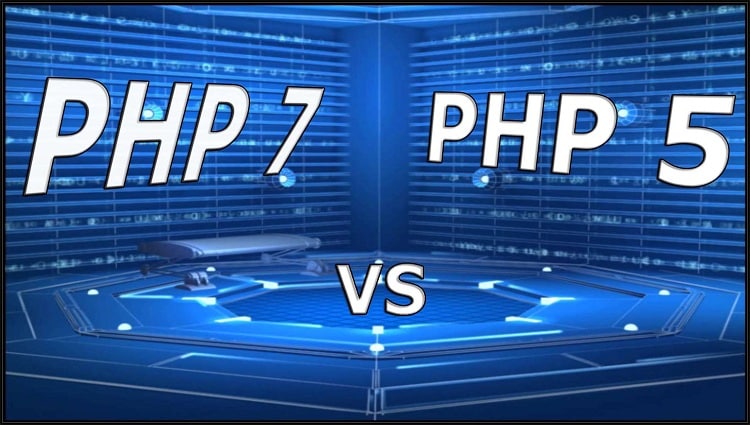If you are not following PHP closely or you are new to PHP programming, you should know that before PHP 7, PHP 5.6 used to be the stable version. It is quite surprising to many to learn that the company avoided releasing PHP 6 because PHP 6 was out for testing but it never really got a stable version. As PHP 6 existed as an experimental project, the company did not want to confuse the community with its release and jumped directly into PHP 7. Obviously, with the release of PHP 7, people started to compare it with its previous version. If you are the one falling in the same category of people, the following detailed comparison of the major difference between PHP 5 and PHP 7 will be immensely helpful for you.
Major Differences Between PHP 5 And PHP 7 –
When anything gets upgraded to a new version, most of the parameters get upgraded for better. In all the different parameters listed below, PHP 7 has made massive improvements that are worth mentioning.
Performance –
The performance of PHP 7 and PHP 5 is a major difference. Supposing that you have written a PHP code in PHP 5, if you run the same code in both the versions, the performance of PHP 7 will be significantly higher than PHP 5. PHP is powered by Zend engine even since the release of PHP 4. PHP 5 uses Zend II but PHP 7 uses a brand new model of engine called PHP-NG or Next Generation. This new PHPNG engine improves the performance as much as twice with optimized memory usage. This has been proved by the benchmark provided by the company. As a matter of fact, the new engine requires fewer servers to serve the same number of users as before.
Declaring The Return Type –
In PHP 5, the programmer cannot define the return type of a function or method. This has been a huge drawback in the real-life coding scenario as the programmers were unable to prevent unwanted return types and generate exceptions in otherwise case. Fortunately, PHP 7 allows programmers to declare the return type of the functions as per the expected return value. This is certainly going to make the code robust and accurate. There are four different return types available – bool, int, string, and float.
Error Handling and 64-bit Support –
If you understand the difference between error and exception, you know that it is highly uneasy to handle fatal errors in PHP 5. PHP 7 has eased the process as it has replaced several major errors with exceptions that can be handled effortlessly. This has been achieved with the introduction of the new Engine Exception objects.
As you might be aware that PHP 5 does not support 64-bit integer or large files but the scenario has changed in PHP 7. PHP 7 has 64-bit support due to which you will be able to use native 64-bit integers as well as large files and hence, you can run applications flawlessly on 64-bit system architectures.
Anonymous Class –
One of the major additions to PHP 7 that is not present in PHP 5 is the anonymous class. Even though PHP had object-oriented approach from PHP 5 but it lacked this feature which is very common in other popular object-oriented languages like Java and C#. An anonymous class is used to speed up the execution time. It is suitable when you do not need to execute a class more than once and you do not need to document it in the project document.
New Operators –
PHP 7 has added a new operator that had been the center of attention when the stable version of PHP 7 came out. It is called spaceship operator that comes with the notation <=> and in the technical term, you can call it combined comparison or three-way comparison operator. The developers are finding the operator extremely useful and they are using it in sorting and various combined comparisons. It works the same as strcmp() and it is considered to be a replacement for the library function version_compare(). It returns 0 when the operands are equal and 1 when the left side is greater than the right and -1 in case of the opposite. If you are used to Perl and Ruby, the operator is already present there.
Another useful operator added is the null coalescing operator denoted by double question marks. The operator is used to check whether something exists or not. It returns the value of the left operand if it exists and if it does not, it returns the value of the right operand. If both do not exist, it returns null.
Miscellaneous –
PHP 7 introduces Group Use Declaration according to which, the programmers will be able to include classes from the same namespace. This is going to save a lot of typing time and will make the code look crisp and readable and debugging will also be easier. PHP 7 has done away with various deprecated functions and unsupported extensions and APIs.

